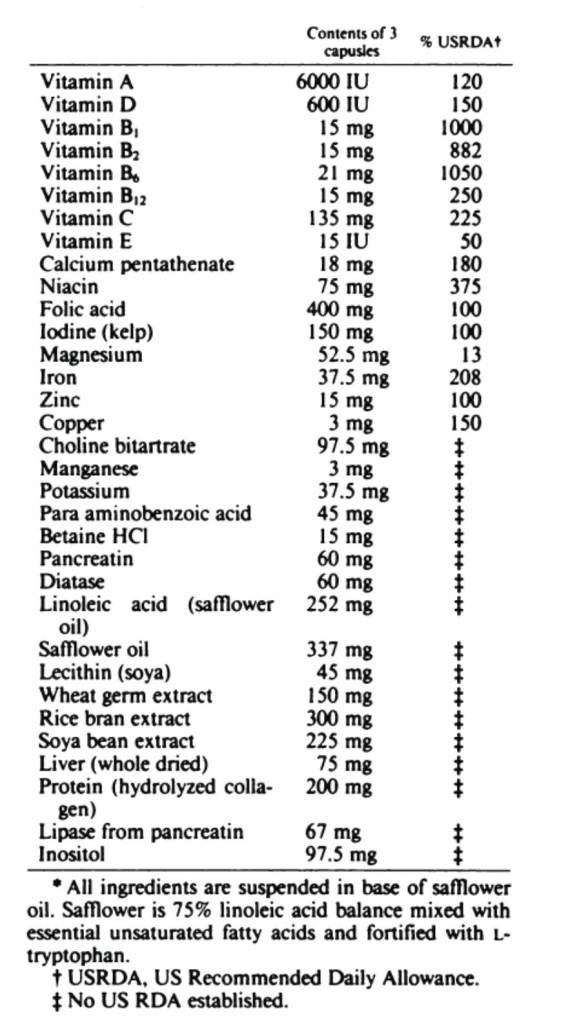I read a lot of nutritional research, and it is true to say that the quality of study design, writing and general subject comprehension by researchers has deteriorated rapidly in recent decades. This likely relates to the fact that science has moved from an art form to a business. There is nothing new about bad science, there it has always been there, but despite its persistence I never cease to be amazed by some of the rubbish that gets published in peer review journals. Of course much of the ‘bad science’ is actually ‘clever marketing’ with researchers who were bought and paid for along time ago. Such researchers work surreptitiously behind the scenes as ‘scientists’, but are really fifth columnists for big business in the food and pharmaceutical industries. Many of the poorly designed studies surrounding the cholesterol theory of cardiovascular disease fall into this category. Big business does not seek the truth, only that its profits remain high, and to these ends statistics can be manipulated, results ‘lost’ and abstract written that resemble nothing of the data contained within.
The classic example of this is the ignorance of dietary fibre and its effects on plasma cholesterol levels in studies assessing the role of dietary saturated fat and cholesterol in cardiovascular disease. As well as ignoring the obvious cholesterol lowering properties of fibre, such studies also oversimplify lipoprotein biochemistry in order to create a false paradigm and push an agenda of cholesterol testing. Another frequently ‘attacked’ proposition in science is the beneficial use of micronutrient supplements. We hear the same tired old ‘you get all the nutrients you need from your food, you don’t need dietary supplements’ from ‘nutritional experts’ (usually dieticians), it is written as fact in textbooks and possibly now has been transcribed as the fourth hippocratic oath for medical doctors. Despite a wealth of information showing that micronutrient supplements are beneficial, and despite their use to correct nutrient deficiencies, studies continue to ‘investigate’ the benefits of supplements in poorly designed studies that provide no useful insight whatsoever.
Such studies are usually of short duration, use healthy individuals without obvious nutrient deficiencies, contain small numbers of subjects and test parameters that would not be expected to change. In addition, they often use low quality supplements that are of questionable value. For example, in one such study1, researchers gave 21 male runners a multivitamin and mineral supplements to test its effect on ergogenic performance. The supplement contained a range of vitamins and minerals with some other minor ingredients. Based on the large number but low amounts of ‘other nutrients’ within the supplement those in the industry might refer to this as a kitchen sink formula (figure 1). The subjects took the supplement daily for 4 weeks and then performed an exercise routine to assess their performance, while a control group received a placebo tablet with no active ingredients. The parameters measured following performance were muscle glycogen, blood glucose, plasma fatty acids, aerobic capacity and blood lactate levels.
The results of this study showed that the supplement had no impact on physical performance and the data derived from the control and treatment groups did not differ significantly. The lack of an effect of such a supplement in this study is really not surprising based on the study design. Whether the authors were not nutritionist and therefore had no understanding of the purpose of a micronutrient supplement or the study was deliberately designed this was to ostracise such supplements is not clear. What is clear is that if we go through our checklist we see all the tell tale signs of poor study design used in a number of studies that have found no benefits from such supplements. Short-duration study, check. Low number of subjects, check. Subjects in good health with no evidence of requiring micronutrient supplementation, check. Measuring parameters that would not be expected to change with micronutrient supplementation, check. Low quality supplement with questionable ingredients and low amounts of particular nutrients, check.
Would anyone really expect a micronutrient supplement to increase aerobic performance in healthy individuals in four weeks? Studies indicate that some micronutrient deficiencies take many months to correct if present. Obviously any nutritionist worth his salt would know this. Perhaps we should ascribe incompetence to these researchers rather than unfairly tar them with having a hidden agenda? Perhaps they are useless idiots? It is difficult to tell. What is clear is that this study should never have passed peer review. However, despite the obvious ethical, social and moral issues surrounding the ways that researchers are bought and paid for by big business, at least it is understandable why this happens. Many humans are susceptible to this sort of coercement and it is rampant in our society particularly at the juncture of power and money. Why should science be any different? The peer review process is corrupt, it is provably corrupt, and all switched on scientists know this even if they won’t admit the fact.
Dr Robert Barrington’s Nutritional Advice: Micronutrient supplements have a place as part of a healthy high quality diet. They provide good insurance against developing micronutrient insufficiencies and are particularly beneficial to those who perform a lot of physical activity or who are under considerable stress, as both these conditions increases the amount of micronutrients required in the diet.
RdB

